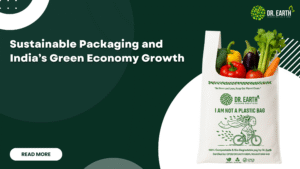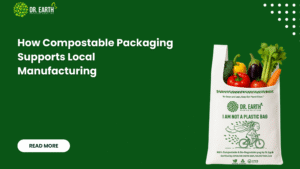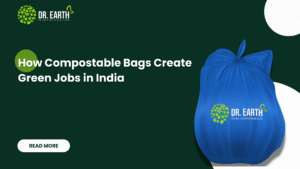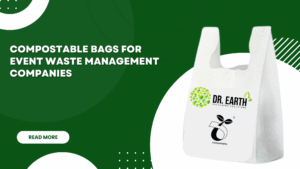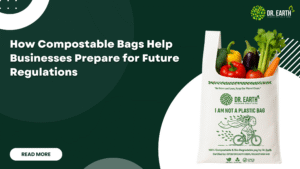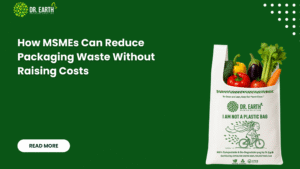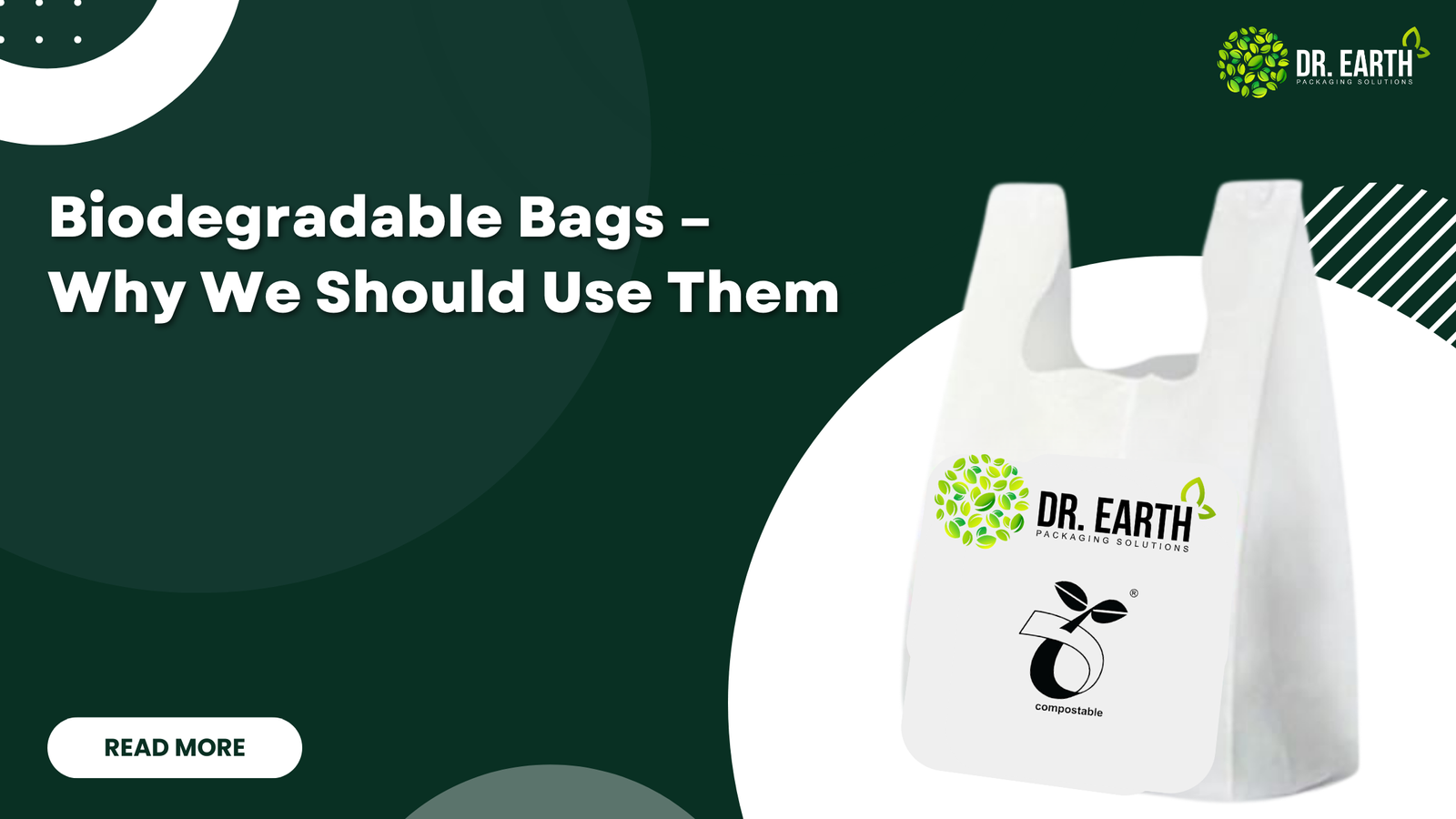
In times where environmental issues are being discussed at the forefront of any global conversation, the transition from bags commonly made of plastic to biodegradable ones has become more of a necessity than a trend. Plastic bags are extremely harmful to the environment and injurious to wildlife and take centuries to biodegrade. Conversely, biodegradable bags break down naturally, thus lowering the environmental footprint for sustainability. This blog analyzes norms that should nudge us towards inhabiting biodegradable bags, which stand to benefit both persons and companies.
The Environmental Impact of Plastic Bags
Pollution and Waste Accumulation
Plastic bags are perhaps the most-used disposables and are among the biggest threats to the environment. Millions of tons of plastic waste end up every year in landfills and oceans, ruining ecosystems and endangering marine life. So damaging has plastic been in the speed of its appearance in the world that it may be said with no exaggeration that it has not decomposed in the environment, giving birth to palpitating wastepect.
Harm to Wildlife
Plastic bags prevent thousands of wildlife deaths per year. Birds, turtles, and marine mammals commonly eat plastic bags, mistaking them for food. The prevalence of plastics in natural habitats is a major threat to biodiversity and ecological stability.
Carbon Footprint
Highly used in biodegradable bags make an amazing and intense impact on the environment. They are derived from petroleum, so this is the stage of non-renewability, while highly polluting materials make their way to the atmospheric level from their manufacturing. Biodegradable bags are from natural ingredients which have a lower carbon footprint.
What Are Biodegradable Bags?
Definition and Composition
Biodegradable bags from corn, potato starch, or other plant materials are made with the help of biologically based materials. Unlike traditional plastics, which break down due to biological and physical action, biodegradable bags are made to completely and safely break down into water, carbon dioxide, and biomass.
How They Decompose
The biodegradable bags decompose through the action of microorganisms present in the soil or composting facilities. The duration of the entire process is dependent on environmental factors like temperature, humidity, and microbial activity. Such bags will usually decompose in a few months to a year, thus greatly minimizing waste accumulation.
Benefits of Using Biodegradable Bags
1. Environmental Protection
Biodegradable bags effectively provide for a clean environment because their typical breakdown process allows nature to use them for biological purposes. These bags will never legacies some horrible plastic accumulation on our oceans and culverts to potentially block innocent ecosystems from surviving for the next generations.
2. Safer for Wildlife
Because biodegradable bags break down into non-toxic substances, animals face less potential exposure to them than plastic, which might tangle and smother wildlife. Biodegradable bags would break down in a way that does not pose a threat to wildlife.
3. Sustainable and Renewable
Biodegradable bags help in less burning of fossil fuels because of their utilization of renewable raw materials like corn and sugarcane. They, therefore, impose sustainability and conservation of natural resources to save our world from extinction.
4. Lower Carbon Emissions
Greenhouse gases emitted during the production of biodegradable bags are much less than those released from the traditional plastic bags. Hence, it will further help avoid climate changes by lowering the overall carbon footprints of packaging materials.
5. Compostability
Some biodegradable bags are compostable, which means that they can be used for the disposal of organic waste. Composting them along with our food scraps and garden waste gives us rich soil that further supports environmental sustainability.
6. Improved Public Image for Businesses
Switching to biodegradable packaging would show to the consumers that the company would take care of the environment. Consumers increasingly prefer brands that put specific focus on sustainability, making biodegradable bags a superior form of marketing for business.
Industries That Benefit from Biodegradable Bags
1. Retail and Grocery Stores
Retailers and grocery stores produce tons and tons of plastic waste every day because of packaging and shopping bags. Switching over to biodegradable grocery bags can solve this problem for businesses.
2. Food and Beverage Industry
Restaurants, cafes, and food delivery services utilize plastic bags in packing their takeout orders. If they are replaced with biodegradable alternatives, problems involving plastic pollution will be reduced in urban areas.
3. Healthcare and Pharmaceuticals
Hospitals and pharmacies demand environmentally safe packaging for medical supplies and prescriptions. Biodegradable bags will present a sustainable shopping alternative while providing for hygiene and safety values.
4. Fashion and Apparel
Clothing brands are embracing sustainable packaging to meet the demands of sustainability from their consumers. Biodegradable bags provide fashionable yet responsible packaging options for fashion retailers.
5. Hospitality and Tourism
Hotels, resorts, and travel agencies account for a greater amount of plastic waste via single-use plastics. The hospitality industry has an opportunity to lessen its environmental burden and most importantly, position itself to tap into the eco-conscious traveler.
Challenges of Biodegradable Bags and Their Solutions
1. Higher Cost
Biodegradable bags are often more expensive to produce than plastic bags. Yet, as demand rises and technology improves, this cost will come down. Businesses can also help reduce costs by developing some good sustainable practices that allow eco-conscious consumers to choose them.
2. Disposal and Composting Infrastructure
Biodegradable bags need specific settings to decompose properly, particularly through composting, an area where there is major room for improvement in the waste management moves supported by local and national governments and private corporations.
3. Consumer Awareness
These biodegradable bags need the awareness of the general public in terms of their beneficial credential and their proper disposal habits. Education and clear labeling will assist the consumer in making wise choices and living sustainable lifestyles.
How Dr. Earth is Leading the Way in Biodegradable Bags
Dr. Earth can be considered as among the leaders in the biodegradable bag industry. Steeped in sustainability, this company specializes in making high-quality compostable grocery bags that are friendly to the environment while still being strong and functional. Dr. Earth’s bags decompose naturally to create minimal environmental impact while being strong and usable.
Why Choose Dr. Earth?
- Compostable Bags: Dr. Earth products meet all international compostability standards, ensuring that they break down safely and efficiently.
- Durable and Strong: Unlike some biodegradable bag, Dr. Earth’s bags are made for continued use; they’re incredibly durable but not designed to break up.
- Broad Application: For everything from grocery shopping, garbage disposal to retail packaging, Dr. Earth offers biodegradable solutions for different sectors.
- Eco-Friendly Manufacture: Dr. Earth makes use of sustainable raw materials and production processes that respect the environment.
By choosing Dr. Earth’s biodegradable bags, businesses and individuals are also playing their part in cleaning and greening our planet.
Conclusion
Making the switch to biodegradable bag is among the easiest steps and possesses the maximum potential for protecting the environment. With biodegradability leading to reduced pollution, lower carbon emissions, and wildlife protection, these bags offer an environmentally safe alternative to plastic. Companies like Dr. Earth are at the forefront of promoting eco-friendly packaging and scratch offers a high-quality compostable grocery bag that perfectly aligns with modern sustainable goals. As consumers, businesses, and governments adopt biodegradable solutions, we inch nearer to a time when we will no longer have plastic waste.
FAQs
Q-1. How long does it take for biodegradable bags to decompose?
Ans- Most biodegradable bags, depending on certain circumstances that determine decomposition (for example, temperature, moisture, and microbial activity), generally take a few months to a year.
Q-2. Are biodegradable bag as strong as plastic bags?
Ans-Yes, high-quality biodegradable bags, such as Dr. Earth ones, are designed to last and can carry comparable weights to normal plastic bags.
Q-3. Can biodegradable bags be composted at home?
Ans-Some biodegradable bag can be composted at home while others can only be composted in an industrial composting facility. Always check the packaging for compostability instructions.
Q- 4. Are biodegradable bags more expensive than plastic bags?
Ans-The production cost is the main reason why biodegradable bag are relatively expensive at this point in time, yet these costs will eventually come down with government and consumer support and as technology improves.
Q- 5. Where can I buy biodegradable bags?
Ans-You can purchase high-quality biodegradable bags from Dr. Earth, a leading provider of compostable grocery bags and eco-friendly packaging solutions.
Share:
Related Posts



